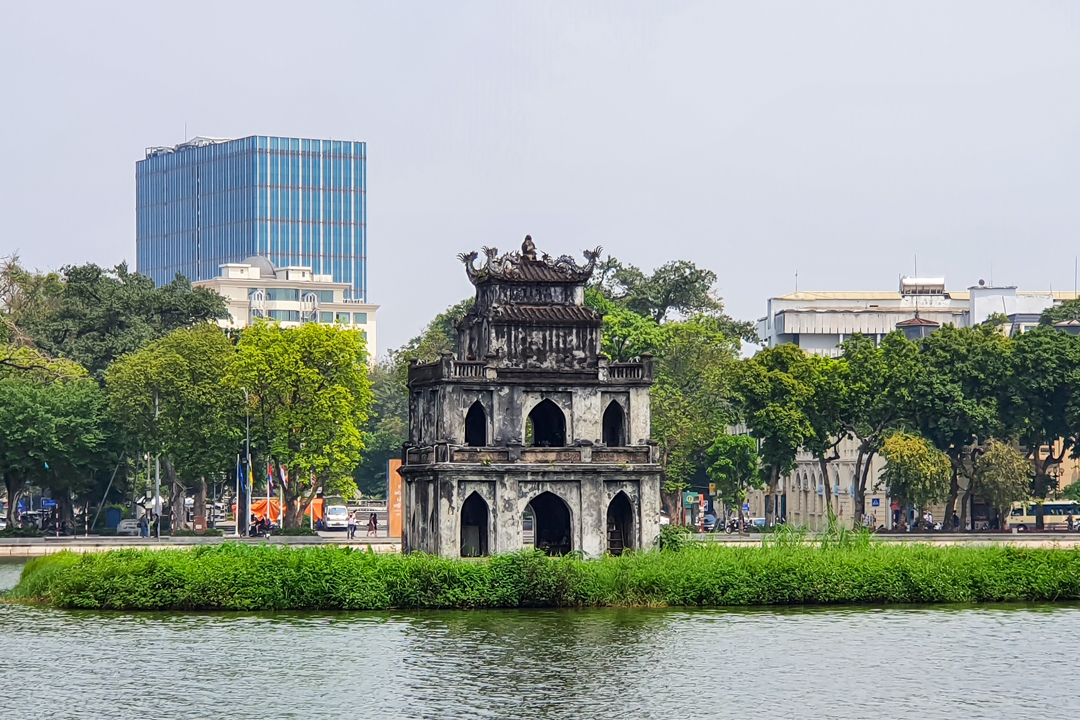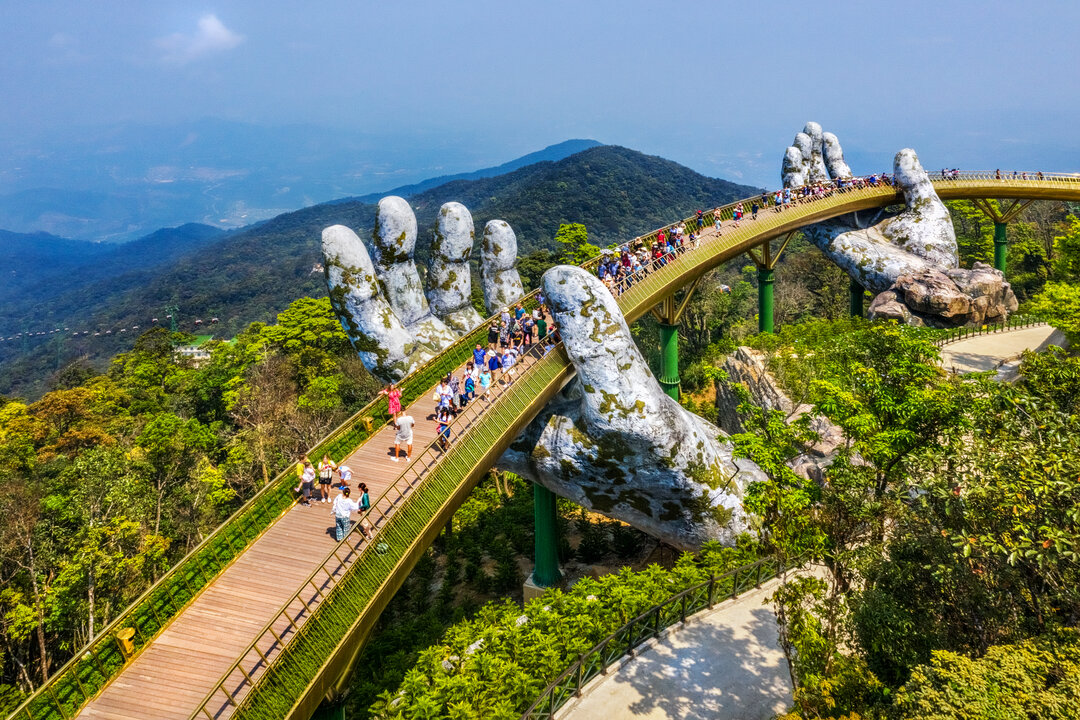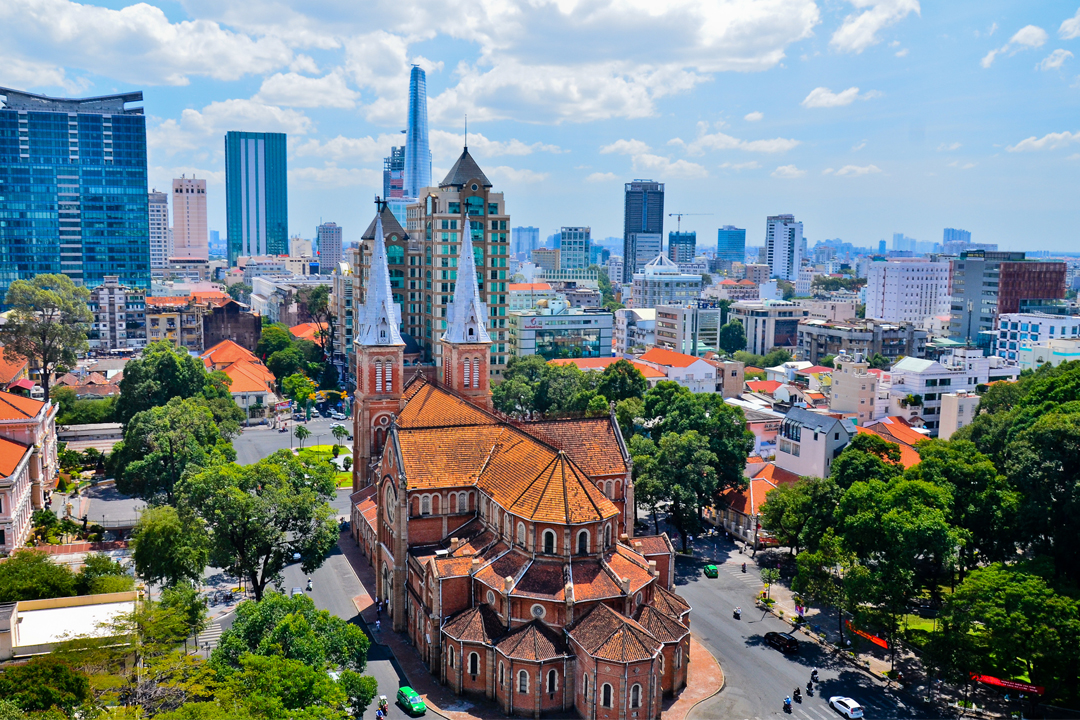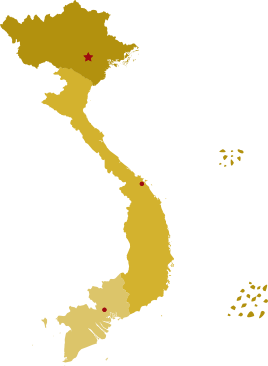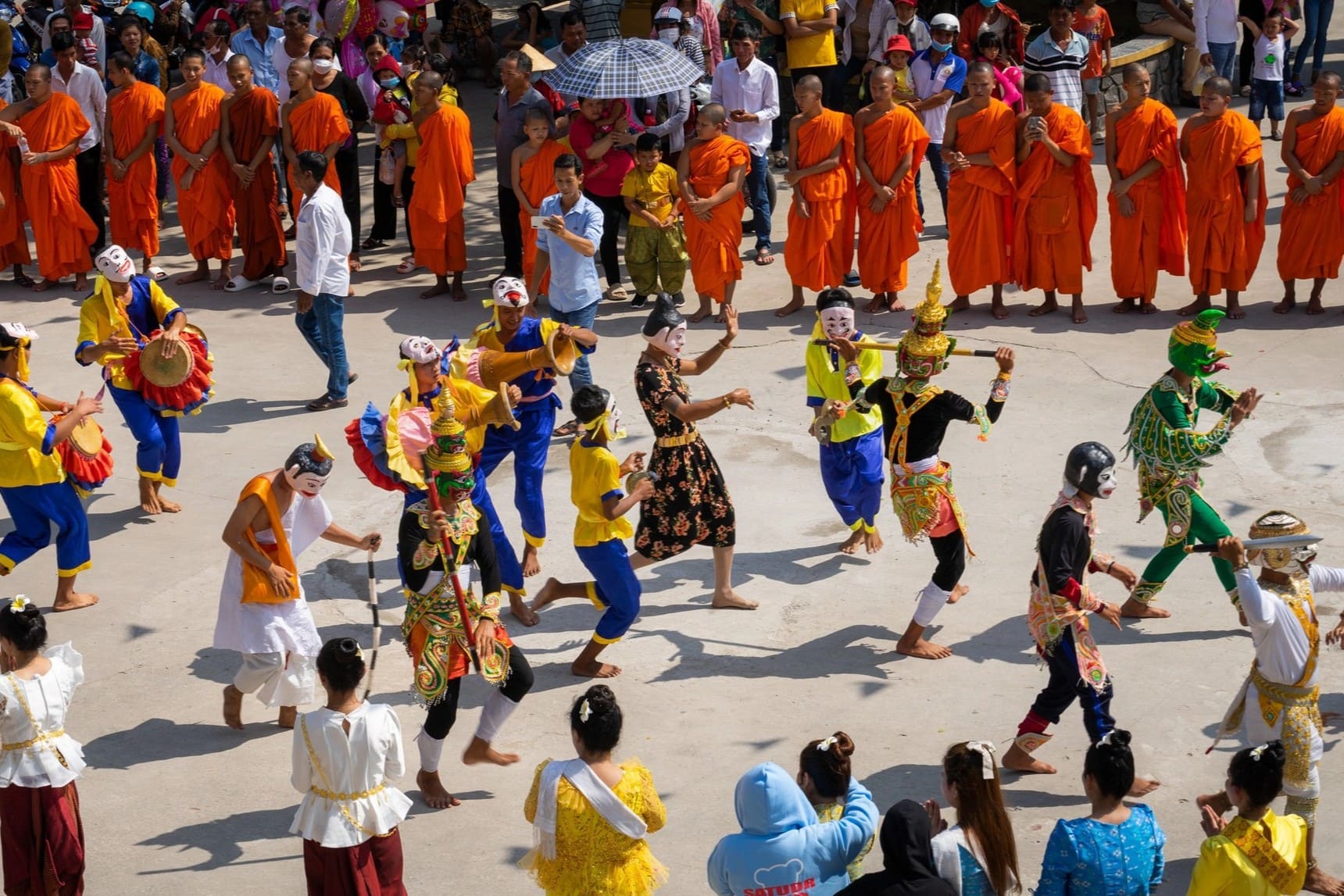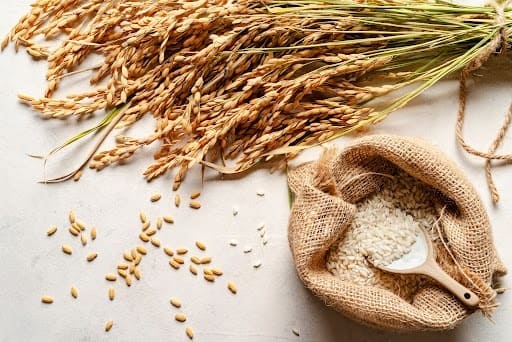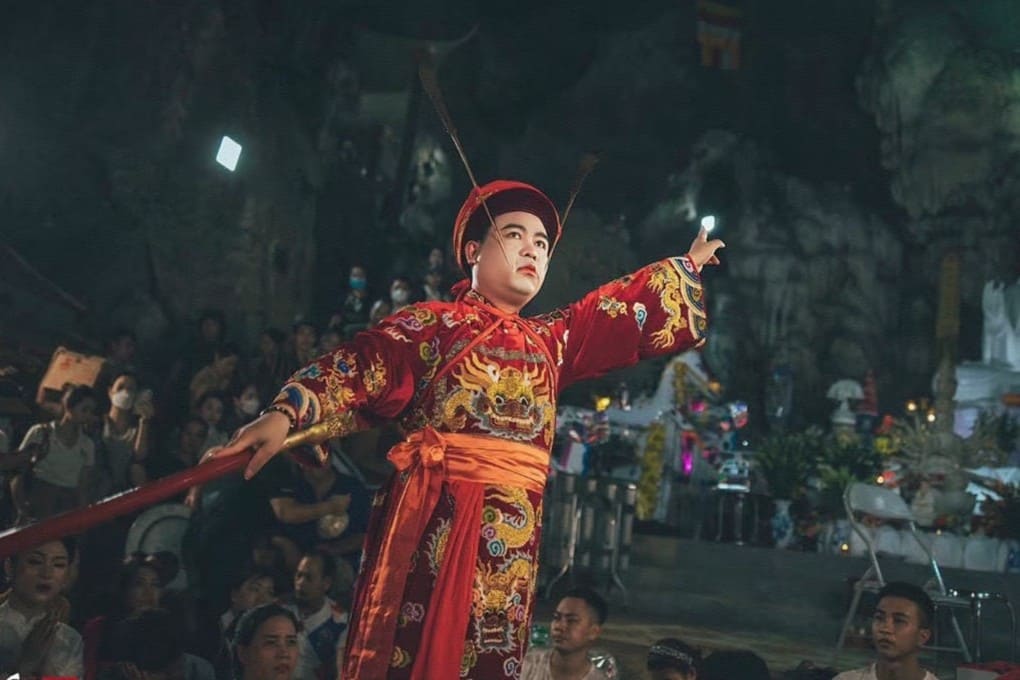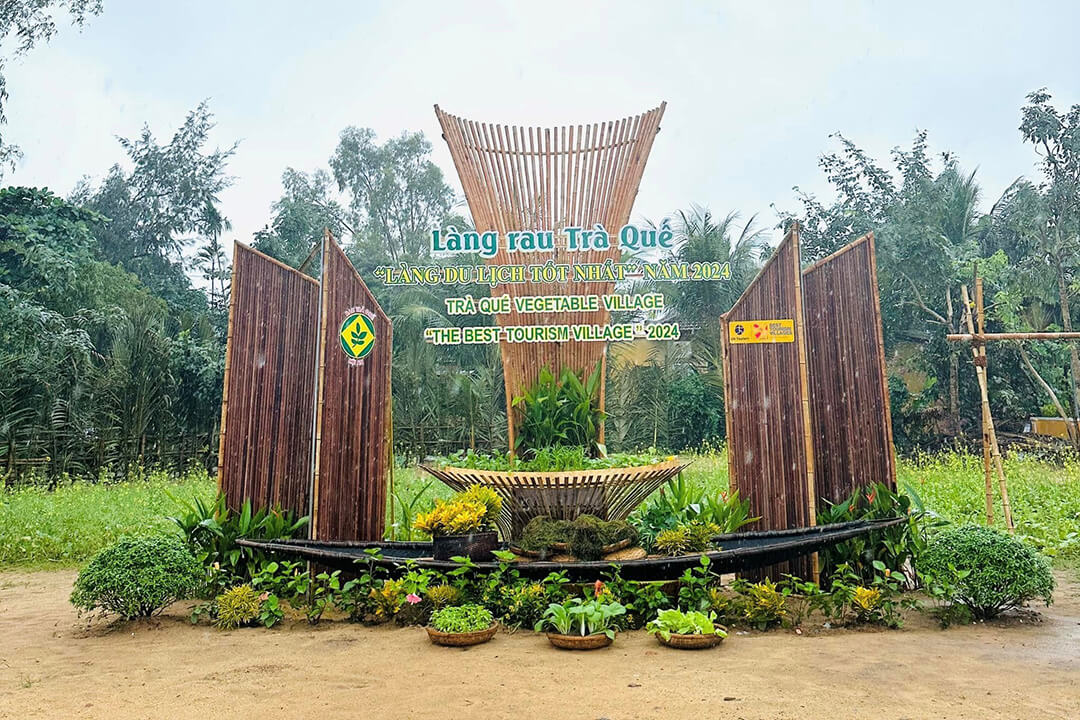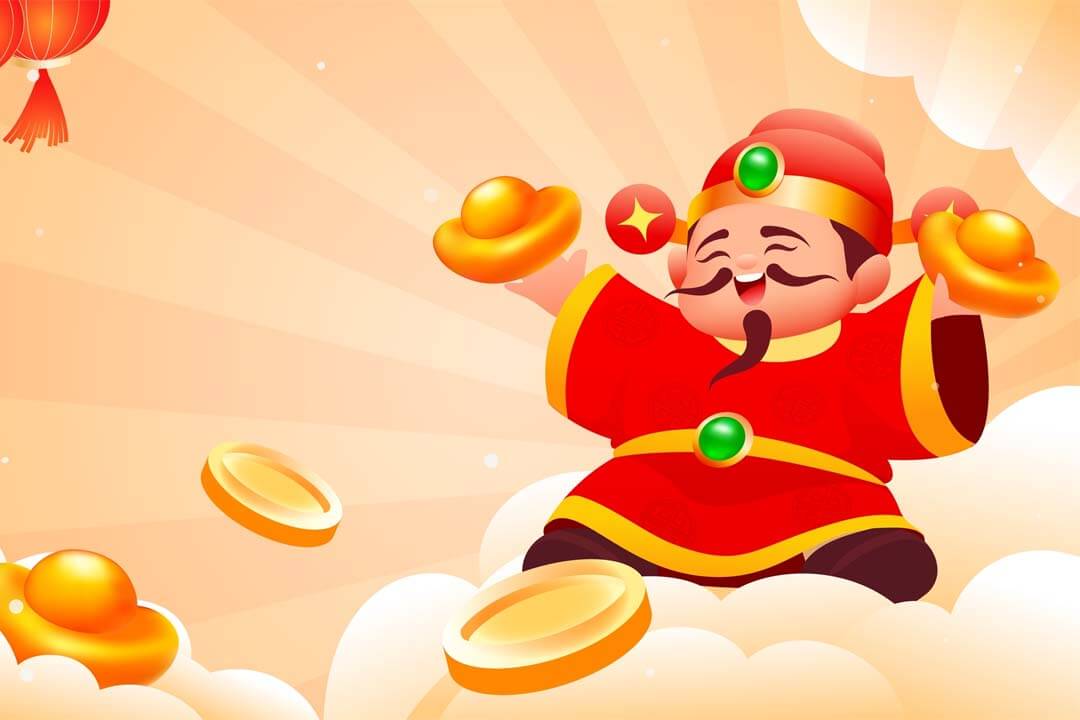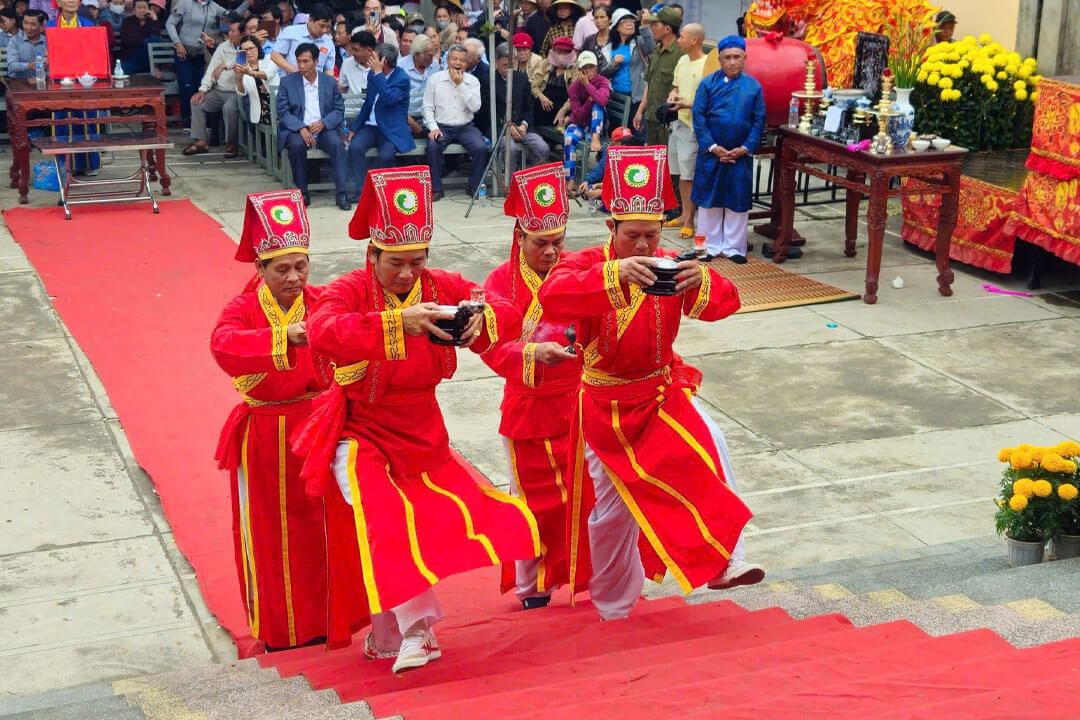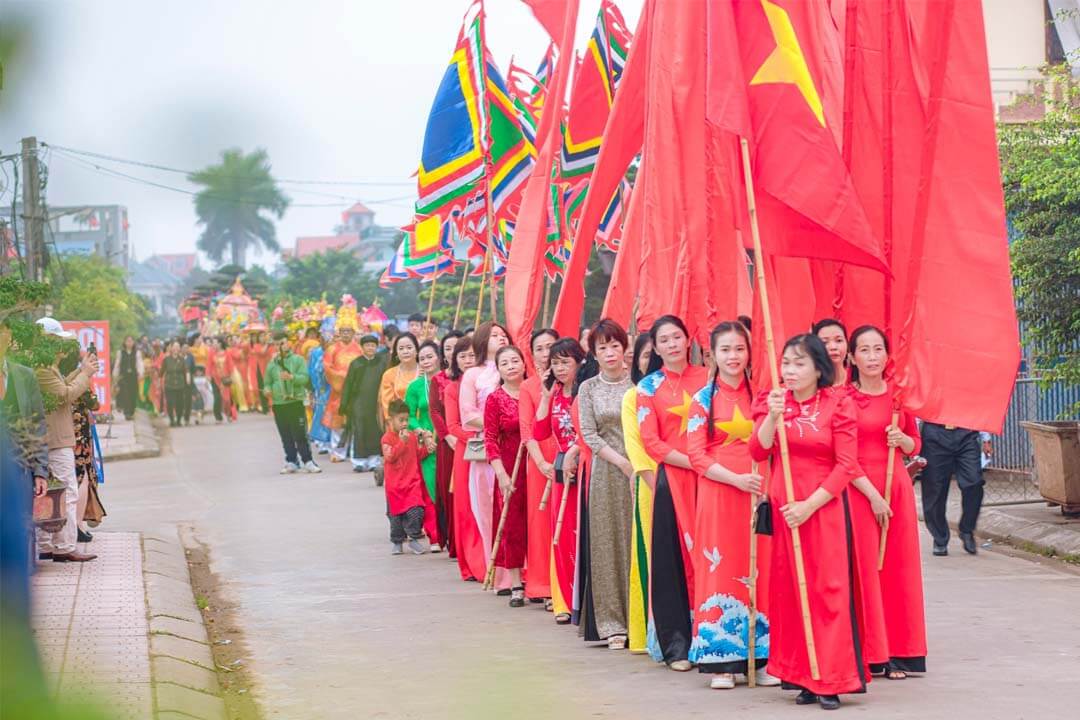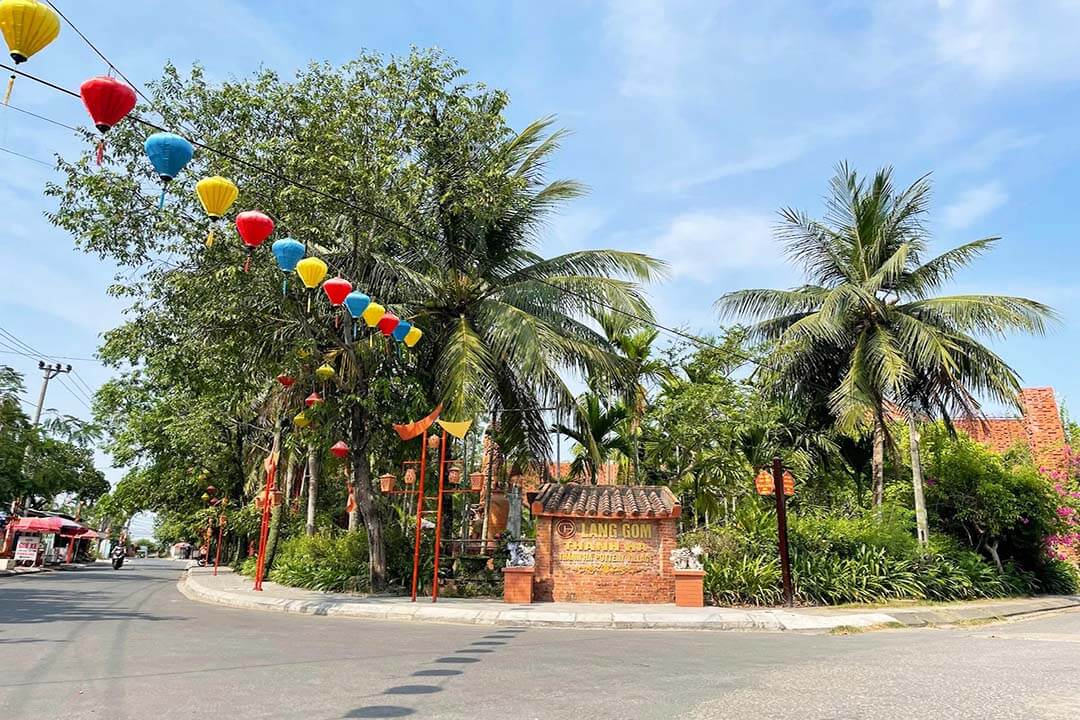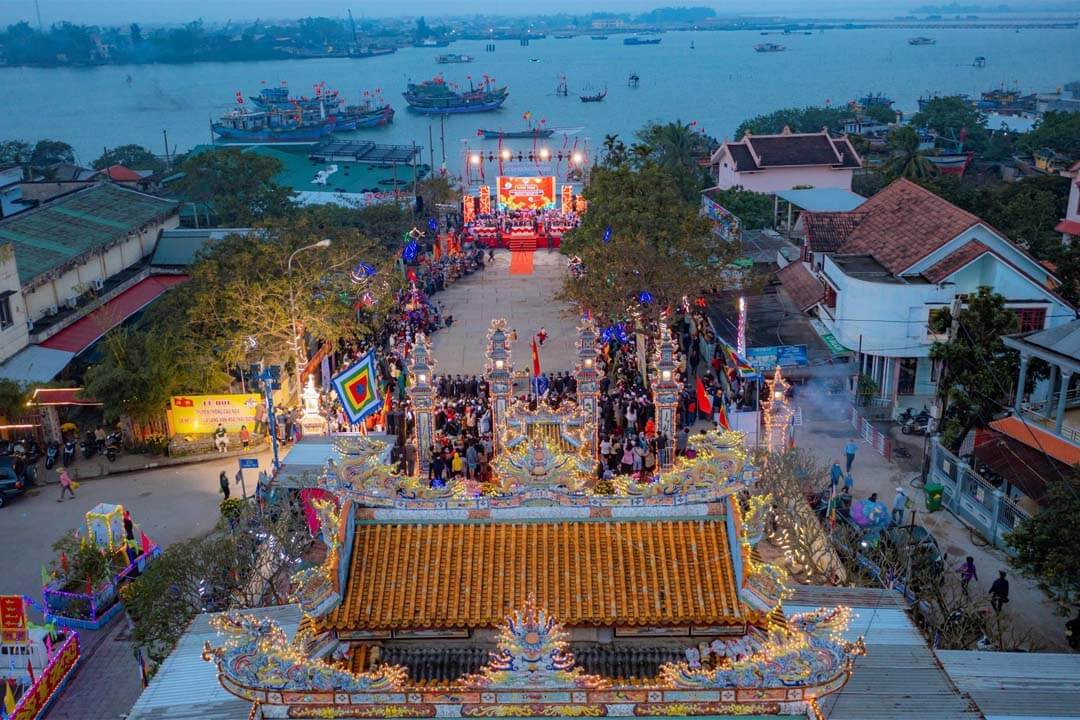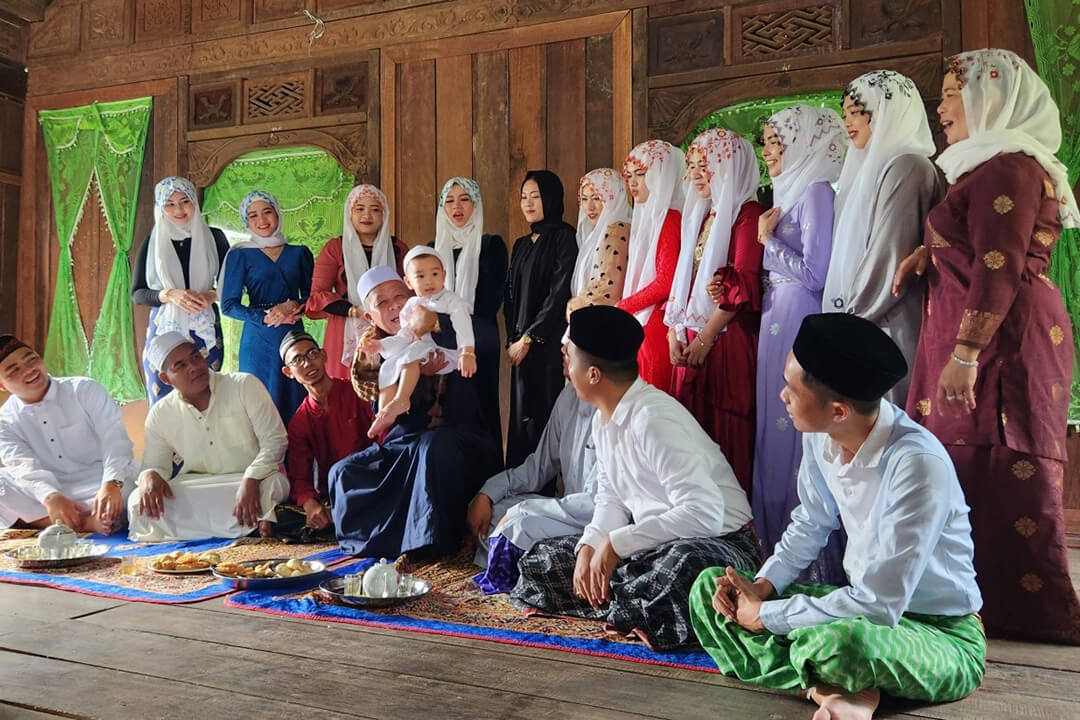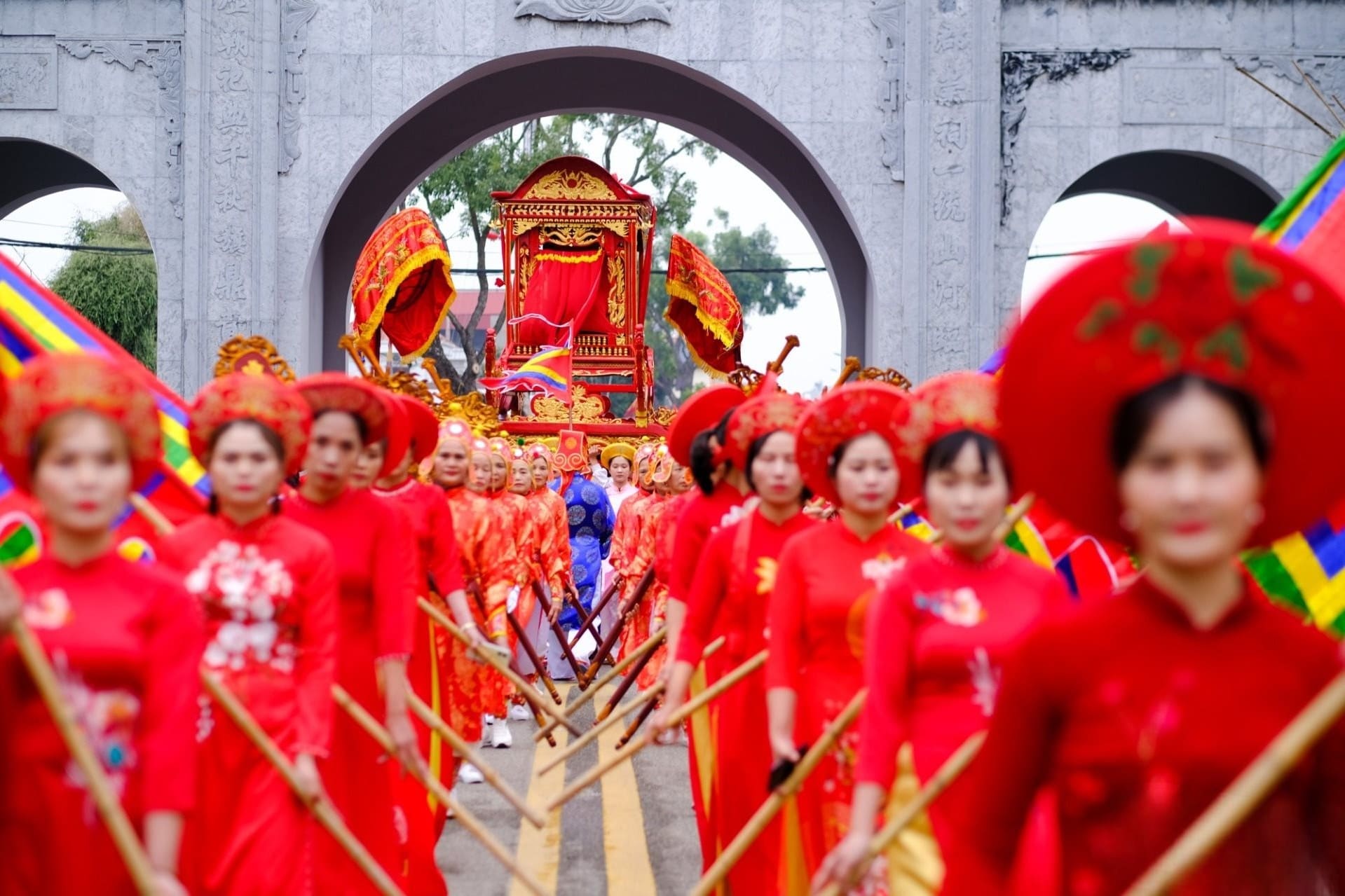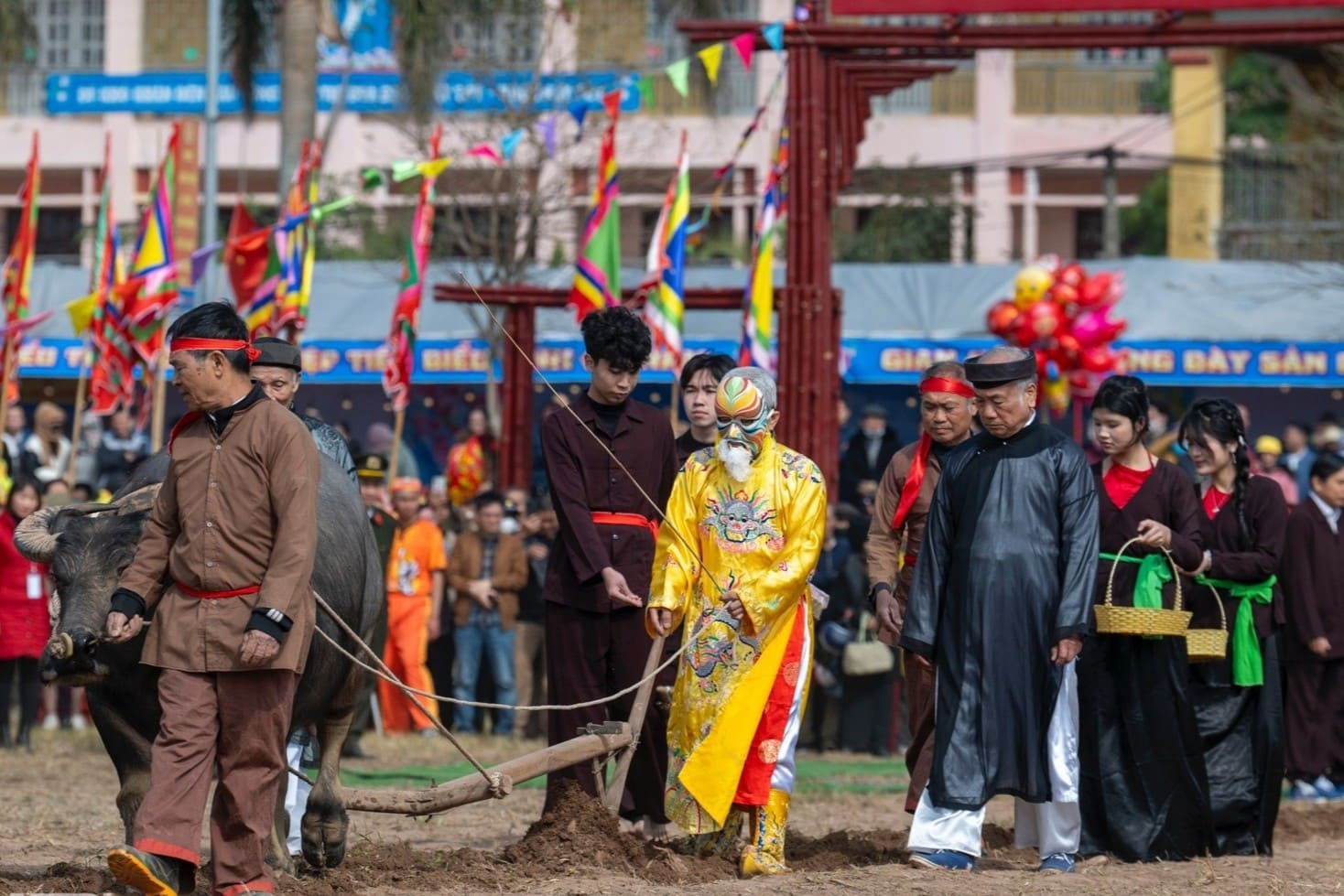Dec - 17 - 2024
Do Temple Festival is a long-standing traditional celebration that has become a custom maintained by the people of Dinh Bang, becoming a vital necessity in the people's spiritual and cultural lives. Let's read the article below to learn more about Do Temple Festival.
What is Do Temple Festival?
The event is held on the 14th and 16th days of the third lunar month. According to legend, King Ly Cong Uan was coronated on the 15th day of the third lunar month. Later, people picked this day as a common celebration to honor the Ly rulers. The Do Temple event is a traditional event that dates back to ancient times and is a very important ritual of the Dinh Bang people. The entire Kinh Bac region is excited, including Thang Long - Hanoi and neighboring provinces.
About Do Temple
This temple covers an area of more than 31,000 m2, with 21 large and small works spread between the inner city and the suburbs. In the middle is the major shrine.
Co Phap Temple and Ly Bat De Temple are other names for Do Temple. This temple draws a large number of tourists each year due to its distinctive design and bold Vietnamese pagoda theme.
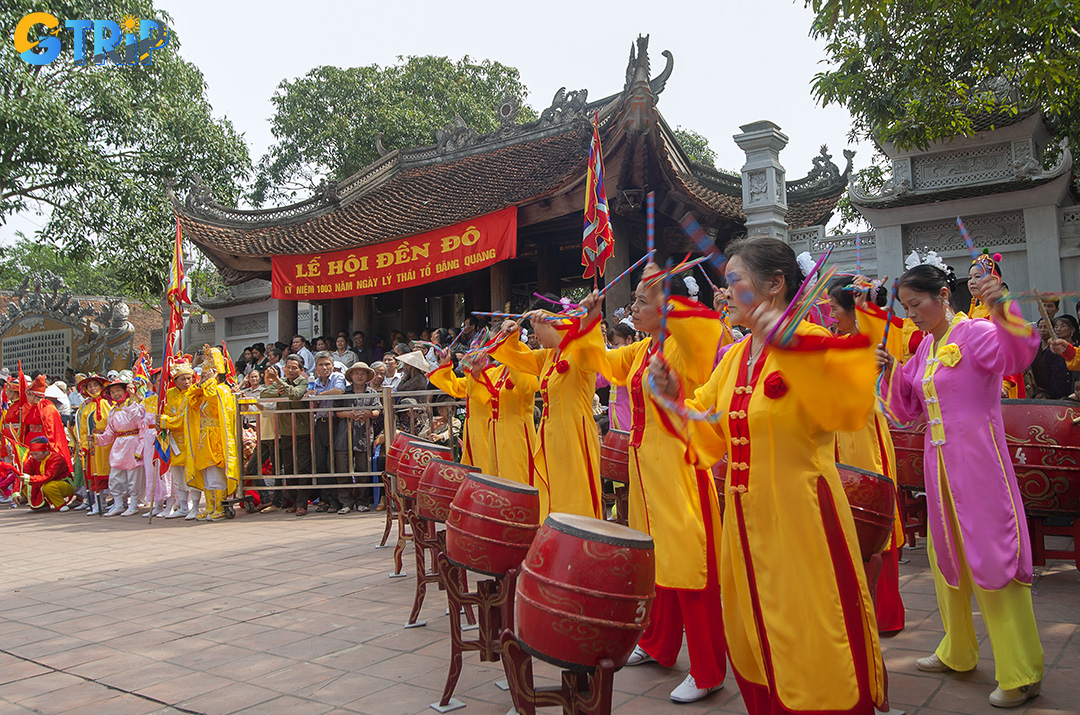 Co Phap Temple and Ly Bat De Temple are other names for Do Temple
Co Phap Temple and Ly Bat De Temple are other names for Do Temple
History Temple Do was constructed around 1030 on territory southeast of Co Phap (modern-day Dinh Bang village). According to Zen Master Ly Van Hanh, this is a premium piece of land, "a great land spirit who enters and exits well," and it is a land of converging natural energy where a dragon's head can be venerated. In front of the temple is a Bang forest and the winding Tieu Tuong river.
Activities in Temple Do Festival
The festival's opening ceremony is a very important aspect, as it marks the beginning of good fortune for everyone in town, therefore all behaviors, words, and voices are rigorously observed.
The "Tuc Yet" ceremony is part of the ritual rite; it is the procession of Ly Thanh Mau Minh Duc, Queen Mother Pham Thi, who gave birth to Ly Thai To. This rite is also known as the filial piety ceremony, or the procession of the Holy Mother to the child's big ceremony. The procession begins at 13:30 on March 13 (lunar calendar) and proceeds through Kim Dai pagoda to the communal home where Thanh Hoang and the Luc Patriarch, the chiefs of six clans that created the village in the 15th century, are venerated. Temple honoring Dharma Master Dinh Khong, Buddhism's sixth ancestor, followed by Co Phap Pagoda to honour Ly Thanh Mau.
The festival's Ly Bat De procession is taken to Co Phap pagoda after a day, on the afternoon of March 14, to chant Buddhist scriptures on the 14th night and arrange all the procedures to process the spiritual cards to the Do temple in the 15th morning. The procession of the Do temple festival is defined as "eight ornate palanquins are carried from Do temple to Co Phap pagoda to listen to monks and nuns chanting sutras, and then returned to their place." The palanquin of Ly Chieu Hoang had to be taken out and positioned in front of the shrine so that she might welcome the palanquin of the eight monarchs.
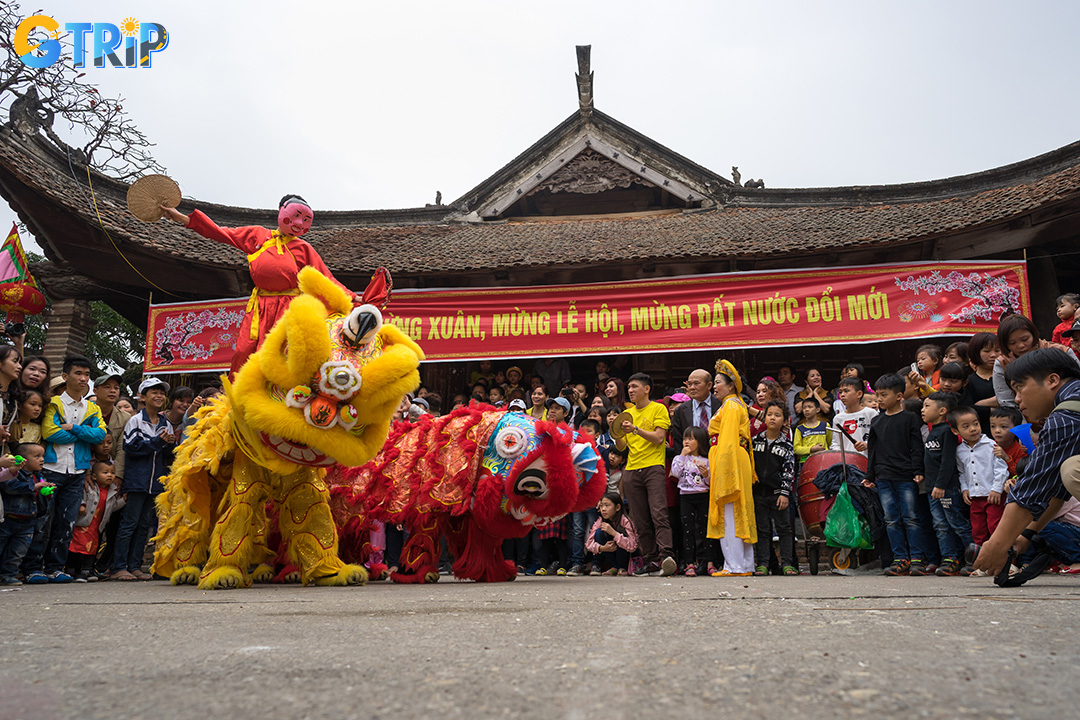
One of notice activities in Temple Do Festival
There is a dragon dance activity at the Do temple festival; this is a characteristic festival activity, reflecting the magnificent Thang Long - a symbol of advancement, the aspiration of the people of wet rice agriculture.
The Great Ritual comes next. Sacrifice is a series of actions and acts performed to honor and remember the tremendous merits of the Ly Kings. The sacrifices made on behalf of the people in the sacred atmosphere beg for protection and faith, giving them remarkable strength to conquer all problems in life. The Do temple celebration used to carry eight palanquins, but due to the time and money required, just two symbolic floats are now carried.
Festivals and festivals are inextricably linked. If the ceremony is a component of belief, it is a part of the spiritual world; then the festival is a gathering of entertainment, that is, daily cultural life, and only on these occasions do people have the opportunity to demonstrate their available talent, or practice. There is a variety of life experiences, with appealing cultural and traditional games with national identity.
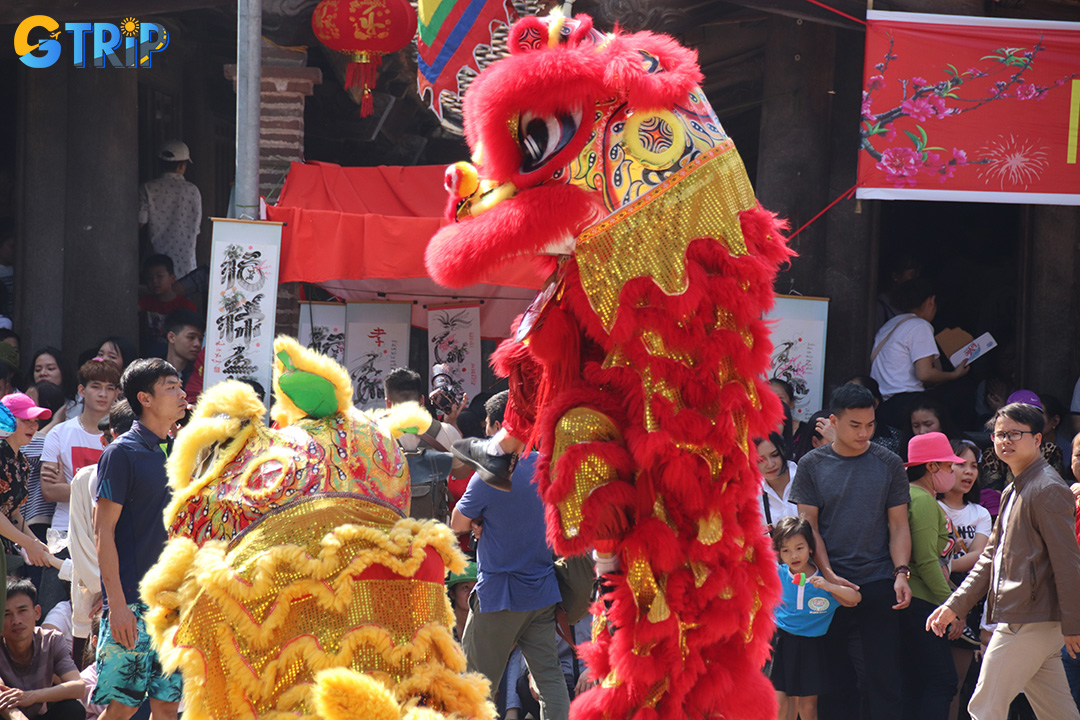
There is a dragon dance activity at the Do temple festival
Wrestling, human chess, singing quan ho, poetry festival, swinging, releasing pigeons, cock fighting, cooking rice cooker competition... are all events at the temple festival. Wrestling is a martial arts sport featured during the event. According to legend, the Ly dynasties highly fostered this pastime, therefore wrestling was used in martial arts tournaments and the selection of martial generals for the court.
Do Temple Festival is a source of inspiration for future generations to appreciate and preserve the essence developed by their forefathers. Vietnamese culture is highly different, and there are many intriguing things not only in festivals, but also in the cuisine, lifestyle, customs, and habits of each locality. Join Vietnam tours to discover the beauty of the Vietnamese nation.
>>> Read more:
Hue Traditional Craft Festival 2023

